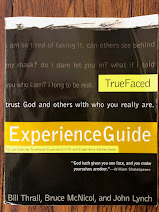The story...
In 1967, psychiatrist Thomas Anthony Harris published the book "I'm Okay - You're Okay." It was a bestseller in the early 1970s. It introduced the idea that a person's psychological state can shift situationally. The three states were easy to understand and remember: Parent, Child and Adult. Parent is like a mix of all that you heard and saw parents and adults do and say when you were a child. Adult is that more independent person who has adapted to, and developed some control over, their environment. This was a helpful model for me. For example, many parents want to work out an adult-adult relationship with their adult children.
What does a good adult-to-adult relationship look like in the only church in town? Would all the people be valued and treated with dignity and respect - treated as equals? This seems to be justified by the USA's Declaration of Independence (1776):
"We hold these truths to be self-evident, that all men are created equal, that they are endowed by their Creator with certain unalienable Rights, that among these are Life, Liberty and the pursuit of Happiness"
I suppose that the problems are with those persons that do NOT behave, look, think or believe what we or I do - the exceptions. How do I relate to adults who are different from me? Personally, I think we can go a long way by beginning every relationship with one word in mind - RESPECT.
What season of life might the child best be related to as an adult within the only church in town? Jewish boys and girls receive their Bar or Bat Mitzvah at the age of 12. There seems to be many advantages for treating a teenager as an adult. Their teenage season of life might include the practice of giving and receiving adult-to-adult interactions. If the alternative Parent-Child relationship stays in place, then the rebels rebel and the passive are left to be led as if they were pulled by a ring in their nose. I expect that being treated like, and behaving like, an adult would be a good place to come from when learning about who I am, where I'm going, and how to get there. Yes, that was a definition of wisdom worked into that last sentence.
Just for today...
"I came to see how, as a child, I had played a role in creating the dynamics of my family. Not knowing how to manage uncomfortable feelings, I tried to stuff them deep down inside, but they didn't go away. Instead, they led me to behave in ways that perpetuated the feelings." Hope for Today (p. 73)
"When I behave self-righteously, I'm the one who suffers - I separate myself from my fellow human beings, focus on others, and keep busy with hateful and negative thoughts." Courage to Change (p. 73)
"Looks like home; Worn-out shoes - Have new ones; Choose the holey." Am I a Poet?



No comments:
Post a Comment